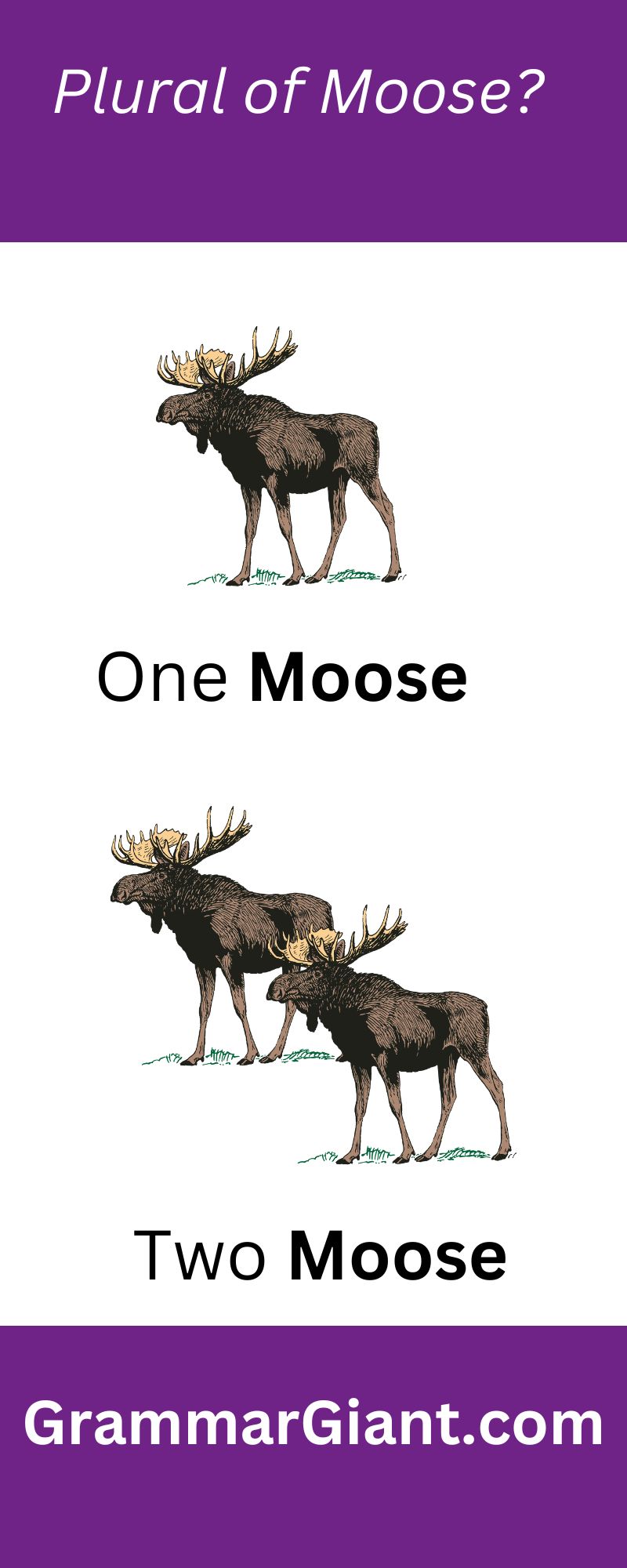"What's the plural of moose?"
The plural of moose is moose.
Definition of moose:
A large mammal of the deer species with big antlers, humped shoulders and long legs. It is the largest member of the deer family
Why is the plural of moose not meese?
Many people mistakenly believe that the plural of moose is meese. The plural of goose is geese and so logically the plural of moose should be...meese?
The word goose has been in the English language for over 1,000 years. It follows the same convention for plurals as other similar words like foot and tooth, replacing oo with ee to form feet and teeth.
The word moose however, is derived from Native American language Algonquian. In Algonquian the plural form of moose is the same as the singular form of moose and this plural form was retained when the word was adopted into the English language.

Plural of Moose Example Sentences
Here are a few examples that illustrate the use of "moose" in the singular and plural form:
-
Singular: "I saw a moose in the forest yesterday. It was a massive animal." In this sentence, "moose" is used in the singular form to refer to one moose that was seen in the forest.
-
Plural: "There were a group of moose grazing by the side of the road. They didn't seem to be bothered by the cars passing by." In this sentence, "moose" is used in the plural form to refer to more than one moose. The plural pronoun "they" is used to refer to the moose.
-
Singular: "The moose is a solitary animal, and it is rarely seen in groups." In this sentence, "moose" is used in the singular form to refer to one moose. The singular pronoun "it" is used to refer to the moose.
-
Plural: "Moose are known for their large antlers, which can grow up to six feet wide." In this sentence, "moose" is used in the plural form to refer to more than one moose. The plural verb "are" is used to agree with the plural subject "moose."
Moose vs. mooses
The graph shows the occurances of the plural of moose in written English since 1800 using Google's Ngram Viewer.
Fun Fact:
An interesting fact about moose is that they are usually solitary creatures which means they spend a long time alone. In this case the plural word of moose is not a word that is often needed!
Sources:

